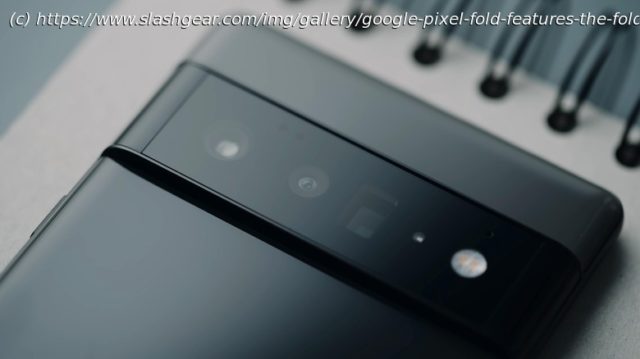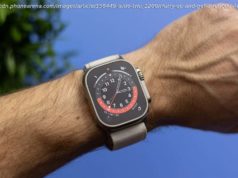Pixel smartphones have been capturing hearts since 2016. As for the upcoming Google Pixel Fold, there are features the foldable smartphone needs to have.
Google’s Pixel line of smartphones has been capturing hearts and stellar photographs ever since its first launch in 2016. Every year since, Google has revamped, reiterated, and redesigned the flagships, which always score highly on reviews, even if the sales figures are only a few percent of the overall market.
The company has had rumors of it developing foldable devices for a long time now, with every year bringing new leaks and corresponding reports of delays. That’s about to change, with 2023 looking like the year that the Pixel Fold makes it to market. This was further cemented when Android Authority got its hands on the Pixel roadmap, which mentions two devices coming at Google I/O in April or May of this year — codenamed Lynx and Felix.
Lynx refers to the Pixel 7a, with Google usually releasing the mid-range handset at the spring developers conference. Felix is the Pixel Fold, although we’re not entirely sure that will be its official name when it is announced.
We’ve used a Pixel device or so throughout the years and have some thoughts on what Google needs to do for a successful first attempt at a foldable.No major software bugs
The thing about foldable smartphones is that nailing the screen’s hardware is only part of the equation — the software running on the phone must be bug-free. The market for foldables is still a fairly small percentage of the entire smartphone market, with any missteps amplified. Samsung salvaged things after the original Fold’s disastrous non-launch, but that doesn’t mean any other manufacturer can survive major issues.
Google might have an edge here given that it also develops Android, the operating system running on billions of devices. Pixel devices are guaranteed three years of major OS updates, and five years of security updates, so the Pixel Fold will likely have a longer software support window than competing foldables.
With Pixels running close-to-stock Android, the support for foldable screens is already there. App support is also good, thanks to the deep partnership with Samsung on compatibility issues.
What’s not clear is if the Pixel Fold will launch with any self-inflicted software issues. Most Pixel releases had at least one major software issue, like the Pixel 6 having screen brightness and refresh rate issues and other quirks like the user interface not responding to inputs. The Pixel 7 also had some minor issues, with gesture navigation and sticky scrolling being some of the main complaints.
The Pixel Fold needs to nail the user experience to be a success, and that includes the software. Glitches or crashes will make a second device less likely.No major hardware issues
Google’s Pixel range has a long launch history of major hardware issues, going right back to the first Pixel in 2016. That device had two main issues, one that made the camera inoperable and one that gave the audio crackling distortion in some circumstances. The audio issue was hardware based, and the fix was to limit the maximum volume the device could reach.
Then the Pixel 2 XL had multiple issues with its OLED screen, including blue shift, drab colors, and the big issue — burn-in. The Pixel 3 had issues with the camera not saving some pictures and a faulty OIS that made the camera shake. The Pixel 3a had random shutdowns, the Pixel 4 XL had glass backs that loosened, the Pixel 4a overheats when taking video, the Pixel 5 had worrying gap issues between the screen and case, the Pixel 5a had overheating issues and a glitchy touchscreen, the Pixel 6 had Wi-Fi issues and slow fingerprint sensors, and the Pixel 6a overheats. And both the Pixel 6 and Pixel 7 devices had a security flaw in the modem that has been patched.
The picture here isn’t rosy for Pixel, and the Pixel Fold introduces more complexity with the folding screen and the hinge mechanism. If this launch happens without a major hardware issue, it’ll be the first time in the history of Pixel devices.A reliable fingerprint sensor
The Pixel 6 and Pixel 6 Pro had a slow, inconsistent fingerprint sensor. The official line is that this is by design, with the sensor doing extra work to verify your finger is actually your finger before it will unlock the device.
This will be even more of a problem on a more expensive foldable as it won’t match the feeling of a premium device. Android devices don’t have Apple’s Face ID system to use instead, and its own face unlock systems aren’t secure enough for use with banking apps.
The good news for anyone wanting a Pixel Fold is that Google might remove the under-screen fingerprint sensor entirely. Other foldable devices, like the Galaxy Z Fold 4, use a fingerprint sensor that’s embedded in the power button on the side of the device.
That’s where serial leaker Jon Prosser, over at Front Page Tech, reckons the biometric scanner will be situated on the Pixel Fold. His renders and info come from physically seeing a supposed prototype, so while it’s not confirmed by the manufacturer, it’s pretty hard to reposition or redesign a fingerprint sensor at such a late stage.Great camera performance
The camera performance is always the main selling point for the Pixel range. Google made digital magic happen with the computational photography it used to turn the 12-megapixel single sensor from early Pixel devices into one of the best cameras in the smartphone market.






